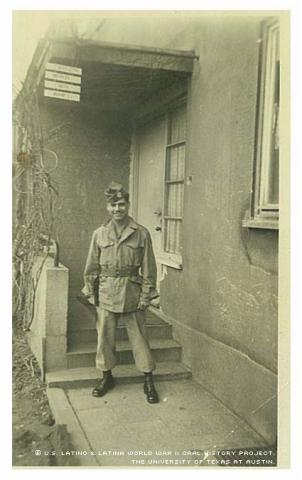
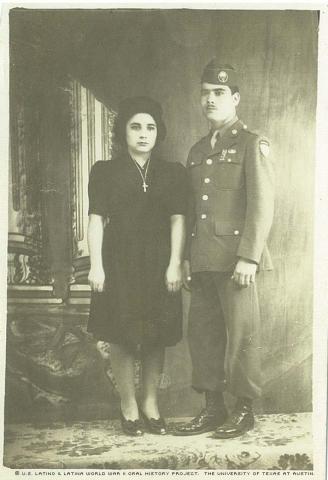
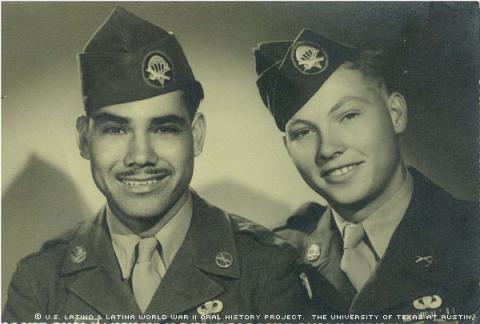
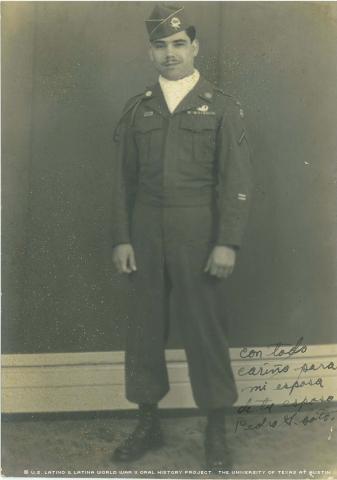
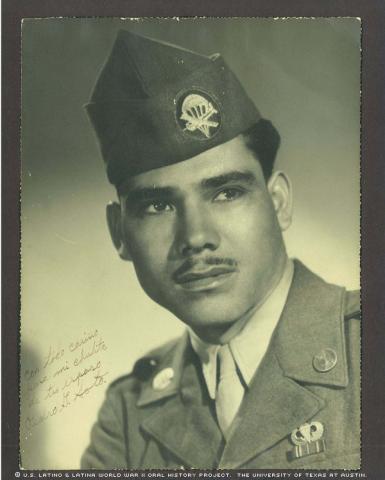
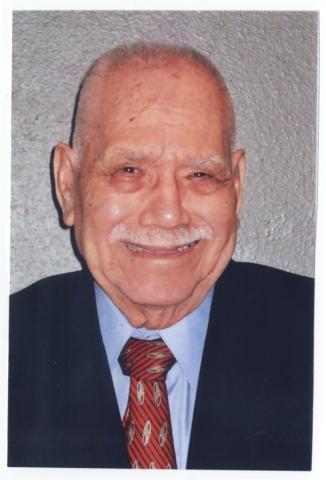
By Frank Trejo Jr.
Pedro Gomez Soto knew the importance of making the most of what life gives you. He was fond of saying that experiences “grow you up.”
And they certainly did for Soto, who started working as a boy with other migrants in the fields and went on to honorably serve his country during World War II. In addition, he continued to make contributions to his family and community long after his military service.
Soto was born on Sept. 9, 1922 in San Antonio, one of five children born to Aniceto and Juliana Soto. He had only an eighth grade education, primarily because working in the fields kept him away for large parts of the school year. He grew up speaking Spanish, but he learned English in school.
Eventually, Soto became a truck driver and also learned to be a barber from his father.
After Pearl Harbor was attacked and the United States entered World War II, Soto’s father sent his son to Mexico to keep him from getting drafted and becoming a war casualty, according to a tribute written by his family. He worked at Altos Hornos Monclova, in his parents’ hometown of Monclova, in the Mexicans state of Coahuila.It was there that he met Carmen Martinez. The couple went to San Antonio and married on Jan. 24, 1944. Despite his father’s objections, Soto decided to enlist. His family writes that Soto wanted not only to serve the country he loved, but also to provide a better life for his family.
On July 25, 1944, Soto enlisted in the U.S. Army nearby, at Fort Sam Houston. After basic training, he completed paratrooper training at Fort Benning, Ga., and was sent to Europe, where he was assigned to Company B, 508th Parachute Infantry Regiment, 101st Airborne Division.
He recalled that he was extremely seasick while onboard the ship taking soldiers to fight in Europe. Among his duties in Europe was guarding German prisoners; most of them, he told his family were “actually very nice.” His statement seems to have reinforced his family’s belief that Soto always saw the good in any situation.
In order to earn extra money to send home to his family, Soto would shine the boots and iron uniforms of fellow soldiers. During his service as a paratrooper, on one jump he landed on icy ground and severely injured his back. He told his family that “the commander found out I was a barber. When I hurt my back, I was assigned to the barber shop. That was good because I liked having something to do. They took real good care of me.”
He suffered from lower back pain for the rest of his life.
Soto returned to San Antonio after the war and, on June 27, 1946, was honorably discharged as a private first class. Among the awards he received for his service were: a Europe Campaign ribbon with one Bronze Star; a Good Conduct Medal, an Army of Occupation Ribbon-Germany, and a Victory Ribbon with two Overseas Bars.
Despite his war service, Soto found it difficult to buy a house in a “white” neighborhood, so he eventually bought a modest home on the city’s west side. He lived with his wife, Carmen, and their three daughters—Irma Soto Vinton, Hilda Soto Stickney Poindexter, and Silvia Soto.
He became a civil service employee at Fort Sam Houston, and worked for 30 years before retiring in 1982. But his family said that he also became a skilled painter and inventor, creating various gadgets with just his pocket knife and some tape.
Carmen Soto died in 2001.
Soto’s back problems continued to worsen as the years passed, but he was very proud to be able to pay for his care from the benefits that he had earned through his civil service pension, Social Security, and the Department of Veterans Affairs.
He never thought that what he did in the war was special.
“He loved his country, and never once complained about his injury, any aspect of his military service, or even the discrimination he experienced once he returned,” his family wrote. During the last years of his life, he proudly wore his veterans’ “Screaming Eagles” cap and would swell with pride when strangers would salute him.Soto died on April 24, 2009, at the age of 87; “a proud and grateful American,” his family wrote.
He is remembered for his strong work ethic, patience, will power and creativity. His daughters know they are the children of his sacrifices.
(This tribute for Mr. Soto was written by Frank Trejo Jr., based on military records and information provided by the Soto family.)

